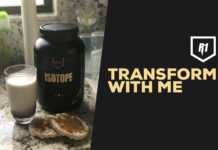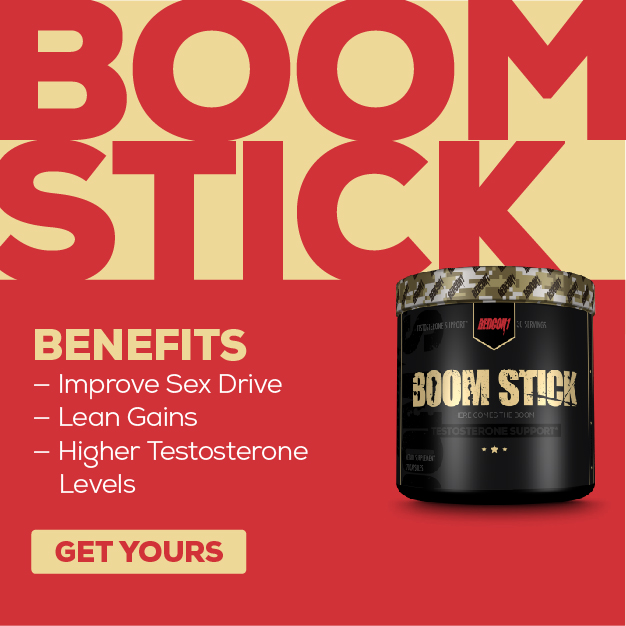
In our last piece on “Performance Enhancing Fats”, we laid out why fats are an essential part of any healthy diet and how some specific fats, can benefit athletic performance more than others.
In a similar fashion when it comes to the world of protein, certain protein sources might be more beneficial than others, especially as supplements.
Protein being, of course, the most important part of any serious bodybuilders diet, let’s take a look at the best alternative protein sources and how they can bring you one step closer to attaining your ideal physique goals.
But first, WHY protein?
The Importance of Protein:
No matter how you look at it, protein is an essential nutrient and critical for life. Protein from animal sources such as meat, dairy, eggs, poultry, and fish all contain the nine essential amino acids that make up a complete protein source.
These amino acids are needed to maintain health, and the body cannot produce them on their own; hence they need to be consumed through diet, or the body will start breaking them down from its own muscle tissues.
These are the nine essential amino acids:
- Tryptophan
- Threonine
- Isoleucine
- Leucine
- Lysine
- Methionine+Cystine
- Phenylalanine+Tyrosine
- Valine
- Histidine
Plant proteins do mostly not contain all of these, or they contain less than ideal ratios making them an incomplete protein source. Vegetarians can attain a complete amino acid intake by combining different plant foods to make up for the differences between them. However, animal protein is the preferred and most suitable protein for the human body to utilize and this is a fact, no matter what you hear the vegetarian side comment on it.
Opposite to popular opinion in the fitness society and some bodybuilding circles, nobody needs to consume protein in excess (for example upwards 300g per day or more); however, it won’t cause you any harm, but such high amounts are simply not needed or utilized by the body on a daily basis.
0.82 g/lb or 1.8 g/kg of protein per day is the recommended daily amount to see improvements in body composition, anything beyond that won’t make much difference so keep that in mind. Obviously, if you are serious about building muscle, you should be staying at least minimum that number most of the time. 1-2 grams protein per pound of weight can, however, be extra beneficial if you are eating a low carb diet for fat loss since metabolically the body has to work harder to break down protein for energy and this can promote weight loss.
20-30g of protein is what is required to initiate muscle protein synthesis to a high degree, which is why you should aim your post workout protein shakes for at least this amount.
However, keep in mind that when it comes to building muscle, more protein than 20-30g consumed at one meal won’t be more beneficial to building muscle. The body will store some of the excess amino acids and use them for other things such as synthesizing hormones, neurotransmitters, enzymes as well as derive energy in the form of glucose through glycogenesis of protein. So while consuming more protein than 30g in one sitting won’t build more muscle, it is beneficial for other things.
Now that we have the basics of protein consumption mapped out let’s get into the most beneficial protein supplements that can help boost your performance.
Whey:
First we, of course, start out with everybody’s favorite protein supplement, the classic Whey protein. Whey protein is derived from milk by separating it from the casein, a process that is naturally done when making cheese.
After intense resistance training, our muscle cells need a surplus of protein to promote healing and repair. Whey contains a higher content of the amino acid Leucine, which is the most important amino acid for protein synthesis in muscle tissues. Whey is also quickly absorbed. Its absorption rate together with its high amounts of Leucine is why Whey, is today the most popular supplement on the market for building muscle mass.
Consume Whey as a recovery supplement after training to reap its benefits on promoting lean body mass, muscle strength, endurance as well as burning excess body fat.
Here at Redcon1, we developed our own high-quality Whey Isolate product, called Isotope. We recommend it for use as a post workout shake to initiate muscle growth as well as in-between meals during periods of bulking.
Collagen:
If you’re a man reading this, a good way to impress your girlfriend might just be to buy her some Collagen powder.
Collagen it widely know in the beauty and cosmetics industry as an anti-aging supplement for great skin and nails. However, there is a lot more to this substance than this, in fact, it is one of the most underrated and deficient protein types of the modern diet.
Collagen is contained in the connective tissue of animals and is primarily made up of the amino acids proline and glycine, which regular muscle meat are lacking in good amounts. Gelatin, which is something more people know what it is, is the cooked form of Collagen.
Pre-agricultural humans got plenty of collagen since they consumed the whole animal, including connective tissue, skin and organs. However, today’s meat consumers typically lose out on these beneficial and nutrient dense parts since we tend to focus on muscle meat only. So why do you want more Collagen? Let us explain:
35% of collagen/gelatin is made up of the amino acid glycine, and it is, in fact, the richest source of it in nature. Glycine acts as an inhibitory neurotransmitter in the brain, which can activate GABA receptors and promote relaxation and deeper sleep.
As might be expected, this inhibitory effect also makes Glycine a potent stress reducing substance capable of lowering the stress hormone cortisol. Cortisol is a catabolic hormone that can break down muscle mass and lower testosterone levels. In other words, as an athlete, you want to control cortisol levels at all cost!
Not only that but as a lifter that does a lot of resistance training, you can significantly benefit from consuming collagen regarding protecting your connective tissues.
Glycine has an anti-inflammatory effect and strengthens the joints and can even provide relief from arthritis. Lifting lots of heavy weights put your joints under more strain than most people. Consuming adequate amounts of the amino acid glycine can make sure you don’t develop joint issues in the long term.
Besides, collagen/gelatin can also increase the levels of the most potent male androgen DHT, as well as promote optimal thyroid function. It’s a no-brainer!
Colostrum:
The holy grail of dairy derived proteins comes in the form of Colostrum. Colostrum is not widely known in fitness and bodybuilding circles but has been used to treat some chronic diseases as well as increase the speed of recovery for people suffering from severe health conditions.
Colostrum is the first milk produced by cows or goats after giving birth. It contains all the benefits of Whey but also has a higher degree of other bioactive compounds, vitamins, minerals, antibodies and growth factors which regular milk does not.
Basically, it is a superfood for the young cows that help strengthen them in the initial periods of growth when they are the more vulnerable. Lucky for us, the same benefits can also be obtained for humans by consuming Colostrum milk.
Colostrum is exceptional in the way that it can boost levels of IGF-1 to a higher degree than most other protein sources. It is also able to restore growth factor deficiencies.
IGF-1 is the growth hormone that is responsible for tissue growth in the body. In other words, this is the hormone that is responsible for all your muscle gains.
Bodybuilders often resort to expensive HGH (human growth hormone) injections to boost levels of IGF-1 since HGH triggers its production in the liver. Colostrum is a safer, natural and better long term solution to making sure you have adequate levels of IGF-1 for growth.
Not only that, but Colostrum also defend against oxidative stress. When your muscles are subjected to high impact resistance training, damaging molecules called free radicals are let loose. These radicals are the same molecules responsible for the critical adverse effects experienced from overtraining. In the case of overtraining, you simply managed to create more free radicals than your bodies antioxidant systems can handle, hence it’s breaking down more.
In studies on mice, colostrum has been shown to shield skeletal muscle from oxidative stress when supplemented before exercise. It is the abundance of growth factors present in Colostrum that contribute to this antioxidant effect.
This antioxidant effect can also protect all system of the body and help prevent other types of disease from developing such as cardiovascular and heart disease. So not only can Colostrum help shield you from the damaging effects of overtraining, but it can also promote longevity.
If you are keen on keeping up to date with the news headlines surrounding health risks, you might have seen the media promote high IGF-1 levels as a cancer risk. The relationship here is much more complicated than that.
The mechanism is simply that cancer are also a form of tissue, and they grow by the same means as any other tissues in your body such as muscle. Increasing IGF-1 levels can hence contribute to cancer growing at a faster rate if you already have it. However, IGF-1 will not CAUSE cancer in itself.
Besides, free radicals have been identified as a cause of mutations and contributing to cancer development. Colostrum guards against free radicals but have in addition to this also been found to trigger the production of a binding protein called GcMaf, which is derived from Vitamin D. This protein has anti-tumor properties and are currently under research as a cancer treatment.
BCAA:
While not actually a protein per say, BCAA (branch chain amino acids) supplements offer some of the most important muscle building amino acids from protein, but in a form that is easy to supplement.
BCAA consists of the following essential amino acids:
- Leucine
- Isoleucine
- Valine
As mentioned before, Leucine is the amino acid among these that has the most positive effects on protein synthesis. It is believed that Leucine works through a few different mechanisms such as modulating insulin signalling, nitrogen donation, prevents tryptophan from entering the nervous system as well as regulating muscle protein translation.
It is not exactly clear how Leucine benefits protein synthesis since there are also theories that it can stimulate various metabolic pathways.
So what can BCAA supplementation do for your performance? Here are the core benefits:
- Enhances muscle protein synthesis in response to resistance training
- Improves fat loss and body weight control during calorie restricted diets
- Improves endurance and prevents the onset of central fatigue
BCAA’s are also a good idea if you prefer to workout while intermittent fasting (which is good for fat loss and building lean muscle), as they can prevent muscle breakdown while consumed during fasted training.
We recommend our BCAA product Breach, which not only contains significant amounts of muscle growth enhancing BCAA’s, but we also added extra electrolytes to the mix to make sure you stay adequate hydrated during intense training sessions.
If you are not a fan of synthetic amino acids such as BCAA’s, we recommend liver or beef amino tablets which were a classic staple among old school bodybuilders back in the 60-70s. They also contain all the amino acids of BCAA’s but also many other nutrients, vitamins and minerals.
Conclusion:
While most people will just argue protein is protein, clearly it is of high importance where you choose to get your protein from if you want to maximize performance.
In highly competitive sports, even the small things matter that can give you an extra edge in your training. Don’t just rely on cheap chicken breast to cover all your protein needs, invest in some performance enhancing proteins and reap all the additional benefits!

















